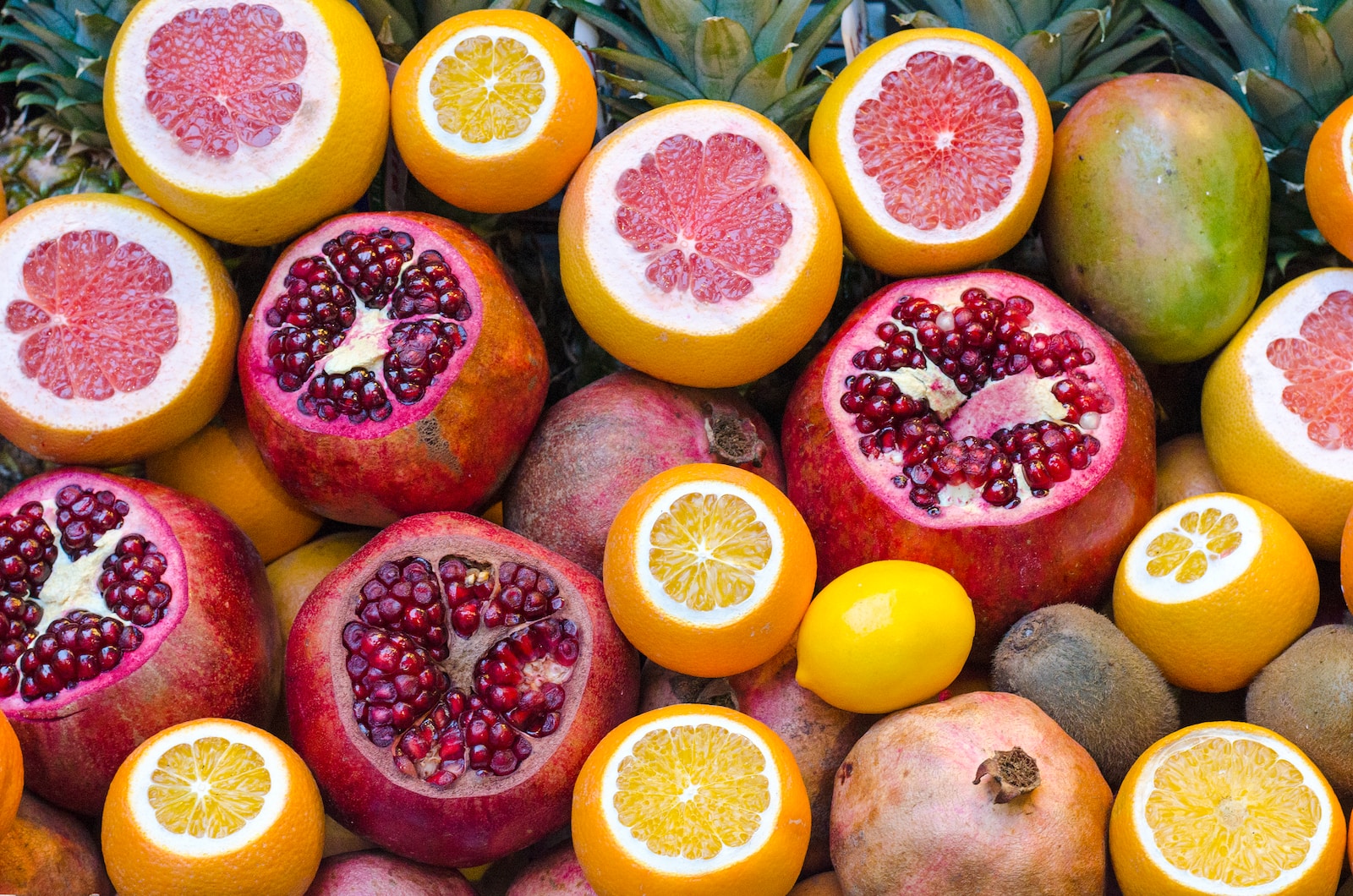As an unabashed chocoholic, I find myself constantly pondering the age-old question: Is chocolate a delectable treat or merely a guilty indulgence when compared to real food? The very mention of chocolate ignites our senses, enveloping us in a world of heavenly aromas and velvety textures. But when it comes to nourishment and overall health, can chocolate truly hold its ground against the realm of real food? Join me on this tantalizing journey as we delve into the decadent world of chocolate and explore its merits in comparison to real food.
Indulgence vs Nourishment: Weighing the Pros and Cons
1. The Pleasure of Chocolate: An Exquisite Delight
Ah, chocolate—the epitome of pleasure and indulgence. Its rich and creamy nature seduces our taste buds, creating a symphony of flavors that dance on our tongues. But does surrendering to this delightful treat mean sacrificing the nutritional benefits that real food offers? Let’s dive in and find out.
2. Real Food: Fuel for the Body and Mind
Real food, encompassing natural and unprocessed ingredients, fuels our bodies with essential nutrients. Fruits, vegetables, whole grains, lean proteins, and dairy products nourish us, supporting our immune system, enhancing brain function, and promoting overall well-being. Can these wholesome offerings truly compete with the irresistible allure of chocolate? Let’s explore further.
Examining the Nutritional Value
1. Chocolate: A Sweet but Nutrient-Poor Indulgence
While chocolate may be a delightful treat, it often falls short in terms of nutritional value. Most commercially available chocolate bars are loaded with added sugars, unhealthy fats, and artificial additives, making them a less-than-ideal choice for those seeking optimal nutrition. However, not all chocolate is created equal. Dark chocolate, with its higher cocoa content, offers some health benefits due to the presence of antioxidants. It is crucial to exercise moderation and choose high-quality, minimally processed options for a more nutritious chocolate experience.
2. Real Food: Nature’s Bounty of Essential Nutrients
Real food, in its unadulterated form, provides an array of essential nutrients that nourish our bodies. Fresh fruits and vegetables are bursting with vitamins, minerals, and antioxidants, which promote optimal health and protect against diseases. Whole grains offer a steady release of energy and dietary fiber, supporting digestion and maintaining stable blood sugar levels. Lean proteins, such as chicken, fish, and legumes, fuel our muscles and aid in tissue repair. By incorporating real food into our diet, we provide our bodies with the nourishment they need to thrive.

The Impact on Overall Health
1. Chocolate: The Heart’s Guilty Pleasure?
Dark chocolate, with its antioxidant properties, has been associated with potential heart health benefits. Flavanols, found in cocoa, have shown promising effects on blood pressure, cholesterol levels, and overall cardiovascular health. However, it is essential to note that these benefits are most pronounced with high-quality dark chocolate consumed in moderation. Excessive consumption of sugar-laden chocolate may contribute to weight gain, increased risk of dental issues, and other adverse health effects. The key lies in savoring chocolate mindfully and with moderation.
2. Real Food: A Path to Wellness
The consumption of real food, rich in essential nutrients, plays a vital role in our overall well-being. Fruits and vegetables supply us with a myriad of vitamins and minerals that support our immune system and protect us from illnesses. Whole grains provide sustained energy, aid in weight management, and reduce the risk of chronic diseases such as diabetes and certain types of cancer. Lean proteins build and repair our muscles while contributing to the production of essential enzymes and hormones. By prioritizing real food, we empower ourselves to lead healthier, more vibrant lives.
The Role of Chocolate and Real Food in a Balanced Diet
1. Chocolate: A Sweet Symphony in Moderation
Chocolate, though not a substitute for real food, can still have a place in a balanced diet. The key lies in enjoying it mindfully and in moderation. Opting for dark chocolate with a higher percentage of cocoa can provide some health benefits while satisfying our sweet cravings. Additionally, incorporating chocolate into homemade desserts or using cocoa powder as a flavor enhancer in healthier recipes allows us to indulge sensibly.
2. Real Food: The Foundation of Nourishment
Real food should form the cornerstone of our diet, providing us with the necessary nutrients to thrive. By emphasizing a wide variety of fruits, vegetables, whole grains, lean proteins, and dairy products, we create a solid foundation for our overall health and well-being. Real food fuels our bodies, supports our immune system, and promotes mental clarity, giving us the energy to tackle life’s challenges head-on.
FAQ: Chocolate vs Real Food
1. Is chocolate considered part of a healthy, real food diet?
While chocolate is derived from natural ingredients like cocoa beans, it often undergoes processing and may contain added sugars, fats, and artificial additives. As such, it is generally regarded as a treat or indulgence rather than a staple of a healthy, real food diet.
2. Can chocolate provide any health benefits?
Dark chocolate, particularly those with a high cocoa content, contains antioxidants called flavanols that have been associated with potential health benefits. These benefits include improved heart health, blood flow, and lowered blood pressure. However, it’s important to note that these effects are most prominent when consuming moderate amounts of high-quality dark chocolate.
3. How does real food differ from chocolate?
Real food refers to natural, unprocessed or minimally processed ingredients that provide essential nutrients and nourishment to the body. It includes a wide variety of fruits, vegetables, whole grains, lean proteins, and dairy products. Real food offers a diverse range of vitamins, minerals, fiber, and other beneficial compounds that support overall health and well-being.
4. Can chocolate be enjoyed as part of a balanced diet?
Yes, it is possible to enjoy chocolate as part of a balanced diet. Opting for dark chocolate with a higher cocoa content and lower added sugars can provide some health benefits while satisfying your sweet tooth. However, moderation is crucial, as excessive consumption of chocolate can contribute to weight gain and other adverse health effects.
5. Can real food be equally indulgent and satisfying as chocolate?
Absolutely! Real food can be both nourishing and delicious. With creative preparation techniques, flavorful herbs and spices, and diverse ingredient combinations, real food can offer a wide range of indulgent and satisfying meals and snacks. The key is to explore different flavors, textures, and cooking methods to make real food an enjoyable part of your diet.
6. How can I incorporate more real food into my daily diet?
Incorporating real food into your daily diet can be achieved by focusing on whole, unprocessed foods. Increase your intake of fruits and vegetables, opt for whole grains instead of refined grains, choose lean sources of protein such as poultry, fish, and legumes, and include dairy products or dairy alternatives. Experiment with recipes, try new ingredients, and make conscious choices when grocery shopping to prioritize real food options.
7. Can a real food diet offer long-term health benefits?
Yes, adopting a real food diet can contribute to long-term health benefits. Real food provides essential nutrients, vitamins, minerals, and antioxidants that support a healthy immune system, aid in weight management, reduce the risk of chronic diseases, and promote overall well-being. By nourishing your body with real food, you are giving it the fuel it needs to thrive.
8. Should I eliminate chocolate from my diet entirely for the sake of real food?
There is no need to completely eliminate chocolate from your diet if you enjoy it. Moderation is key. Instead of indulging in large quantities of chocolate, choose high-quality dark chocolate with a higher cocoa content and consume it in moderation. Prioritize real food as the foundation of your diet, focusing on nutrient-dense options while allowing yourself the occasional treat of chocolate.
9. Are there healthier alternatives to satisfy chocolate cravings?
Yes, there are healthier alternatives to satisfy chocolate cravings. You can experiment with homemade desserts using natural sweeteners like honey or maple syrup, incorporate cocoa powder into smoothies or yogurt, or indulge in small portions of high-quality dark chocolate. Exploring recipes and discovering healthier ways to enjoy chocolate can provide satisfaction while aligning with your real food goals.
10. Can I still enjoy the taste of chocolate while embracing a real food lifestyle?
Absolutely! Embracing a real food lifestyle does not mean giving up the taste of chocolate. By selecting high-quality dark chocolate, practicing moderation, and combining it with real food ingredients in recipes, you can still enjoy the rich and indulgent flavor of chocolate while prioritizing the nourishment and benefits of a real food diet.
Conclusion: Balancing Temptation and Nourishment
In the eternal clash between chocolate and real food, it is clear that both have their merits. Chocolate, with its unparalleled indulgence, offers moments of pure bliss and a touch of decadence in our lives. However, when it comes to nourishing our bodies and providing essential nutrients, real food takes the crown. The key lies in striking a balance—savoring chocolate mindfully and in moderation, while prioritizing real food as the foundation of our diet. So go ahead, relish that piece of dark chocolate, but remember to embrace the bounty of nature’s nourishing offerings as well. After all, life is best enjoyed when we savor the perfect harmony of temptation and nourishment.

